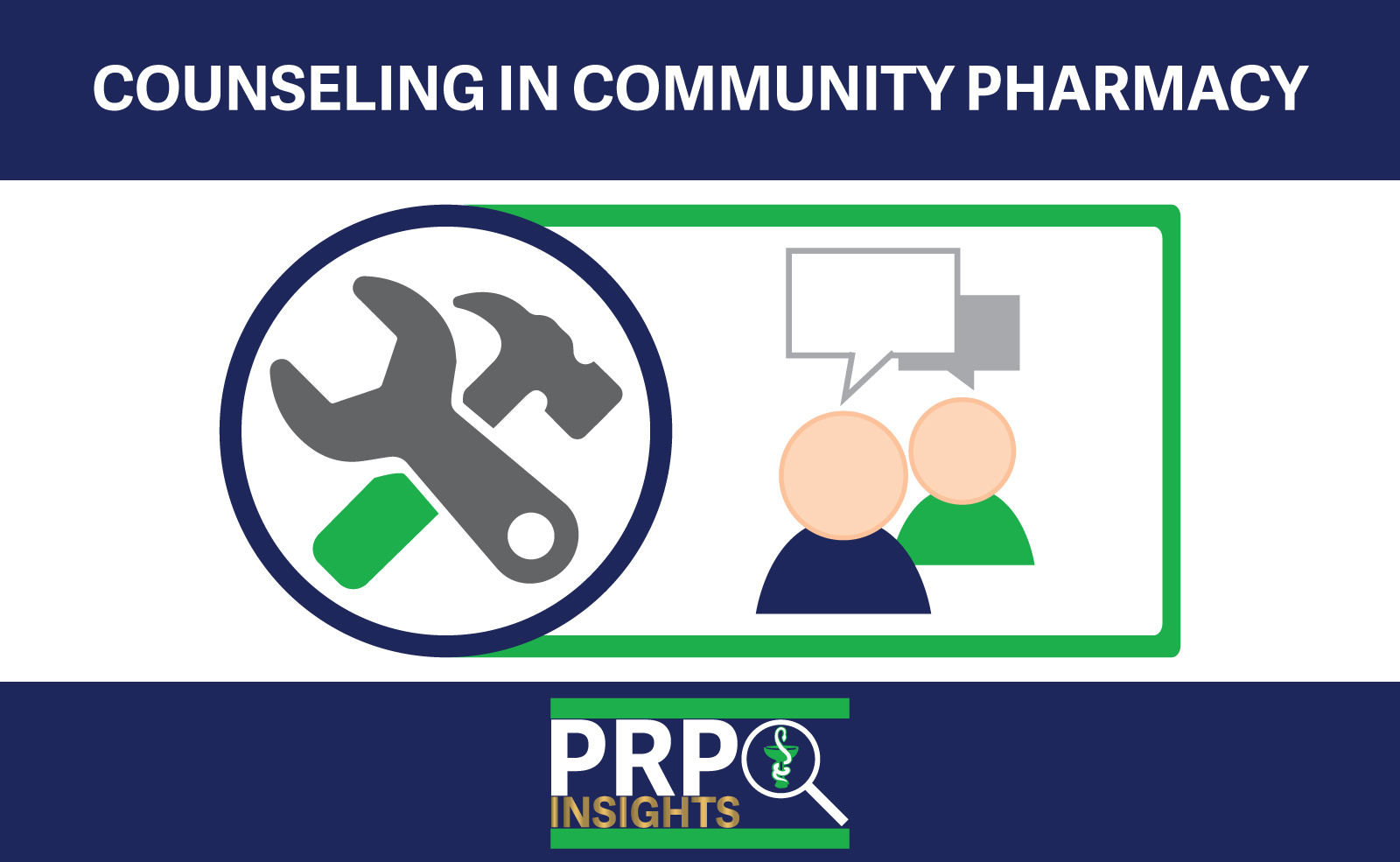PRP Insights: Counseling in Community Pharmacy
The Practice Review Program’s Pharmacy Professionals Review is grounded upon Board-approved focus areas that were identified as having the most impact on patient safety. Counseling is one focus area in which pharmacists can use their clinical pharmacy knowledge to directly increase the probability of positive therapeutic outcomes.
The results from practice reviews show that counseling is the top area of noncompliance during the Pharmacy Professionals Review for pharmacists. The most common issue encountered is the omission of required information such as when to seek medical attention, storage requirements, refill information, action to be taken in the event of a missed dose, and the strength of the drug being dispensed. However in many cases we’ve also observed the omission of points such as the name and purpose of the drug being dispensed and directions for use, particularly during refill counseling. Another area of noncompliance occurs when some patients do not receive any counseling from the pharmacist for their prescription.
The Health Professions Act (HPA) Bylaws require a full PHARMACIST to CONSULT with the patient or patient’s representative at the time of dispensing a NEW or REFILL prescription. In fact, at the time of dispensing, every prescription in community pharmacy must include written confirmation of the pharmacist who performed the consultation. If a patient declines the consultation, the pharmacist must document that the consultation was offered and declined.
Counseling for NEW prescriptions must include:
- Confirmation of the identity of the patient
- Name and strength of drug
- Purpose of the drug
- Directions for use of the drug including the frequency, duration and route of therapy
- Potential drug therapy problems, including any avoidance measures, and action recommended if they occur
- Storage requirements
- Prescription refill information
- How to monitor the response to therapy
- Expected therapeutic outcomes
- Action to be taken in the event of a missed dose
- When to seek medical attention
- Issues the pharmacist considers relevant to the specific drug or patient
Counseling for REFILL prescriptions must include:
- Confirmation of the identity of the patient
- Name and strength of drug
- Purpose of the drug
- Directions for use of the drug including frequency and duration
- Whether the patient has experienced a drug therapy problem
It is important to emphasize that every prescription, both new and refill, requires counseling by the pharmacist on their respective requirements. Simply having the pharmacy assistant or technician ask the patient “Do you have any questions for the pharmacist?” is not acceptable. Similarly, when the pharmacist counsels, simply asking the patient if they have any questions without counseling on all the requirements is not acceptable because patients do not know what they do not know. In both cases, the lack of questions by the patient is not considered a decline of consultation.
Counseling for SCHEDULE II drugs:
- A pharmacist must offer to consult
- The consultation must include potential drug therapy problems, including any avoidance measures, and action recommended if they occur
Counseling for SCHEDULE III drugs:
- A pharmacist must be available for consultation if requested
Patient counseling is also the last chance for the pharmacist to catch drug therapy problems or potential errors.
For additional information on Counseling in Community Pharmacy, please refer to the full Counseling Focus Area.
This article is part of a series exploring each of the four Board-approved focus areas. To read the rest of the series, please use the following links:
- Practice Review Program, PRP Insights

 Share
Share



